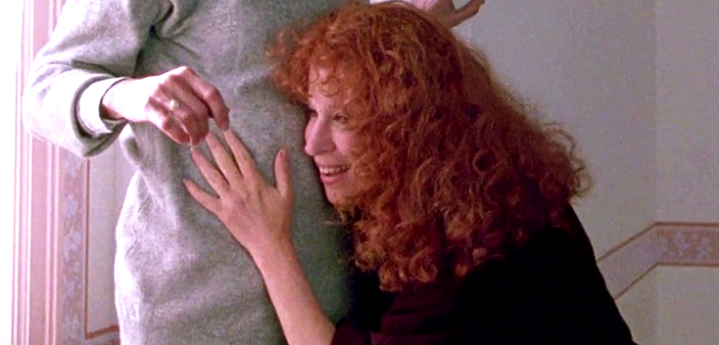New York Times
April 13, 2011
James Taylor’s Singular Voice, Steeped in 120 Years of Music
By STEPHEN HOLDEN
James Taylor may be the foremost contemporary composer of what you might call American lullabies. “Carolina in My Mind,” “Sweet Baby James,” “Shower the People,” “My Traveling Star,” and “You Can Close Your Eyes,” all of which he performed at a Carnegie Hall gala concert on Tuesday evening celebrating the hall’s 120th year, share the same elusive magic. Along with “Home on the Range” “Red River Valley” and Stephen Foster ballads, they seem somehow to have always existed.
Especially when Mr. Taylor sings them in a voice that is both astringent and soothing, he conjures the image of a lonely cowboy murmuring to himself by a campfire somewhere in the Appalachians. The sadness and comfort these songs evoke are two sides of the same coin. Like no-one else’s, Mr. Taylor’s music distills a primal American yearning that can never be completely satisfied: the dream of home sweet home.
Because there is a ceremonial quality in everything Mr. Taylor does, the gala felt a little like an upbeat church service at which Mr. Taylor presided over his flock like a modest Protestant minister. It was the first of four thematic shows, all featuring Mr. Taylor, called “Perspectives.”
A “Roots” evening on April 20 will concentrate on music he heard while growing up. “Guitar Conversations” on May 6 will team him with some of his favorite guitarists. And “Quintessential James Taylor,” on May 9, will be an anthology of Mr. Taylor’s best songs.
Tuesday’s gala, a retrospective of Carnegie Hall’s history, encompassed Broadway, jazz, folk music, and comedy. Featured guests included Bette Midler, Barbara Cook, Steve Martin, Dianne Reeves, Sting, and two choruses.
A somewhat shaky “There’s No Business Like Show Business,” a song very much off Mr. Taylor’s beaten track, led off a show (directed by Scott Ellis), during which photographs of stars who have appeared in the hall were flashed onto a screen at the back of the stage. A flexible band playing musical arrangements by Charles Floyd negotiated the stylistic leaps from vaudeville to folk to rock with impressive agility.
Ms. Midler channeled Sophie Tucker in a medley that included “Some of These Days,” “After You’ve Gone,” and “My Yiddishe Momme.” Demonstrating her stylistic audacity, she leapt from an understated “Pirate Jenny” to a raucous “Sweet Blindness. (Mister D: A rock/gospel number written by Laura Nyro)” Mr. Martin, whom Mr. Taylor introduced as “a banjo-playing fool,” led a bluegrass ensemble through “Foggy Mountain Breakdown” and leavened the evening with sly witticisms.
Although Ms. Reeves performed only one number, the Billie Holiday lament, “Don’t Explain,” it was a killer. Paced very slowly with minimal accompaniment, she sang as though she were dragging the weight of the world behind her.
But the evening’s most compelling performance was Ms. Cook’s “Here’s to Life.” To hear this indestructible woman, who is now 83, muse, “I had my share, I drank my fill/ And even though I’m satisfied, I’m hungry still” in a voice that has lowered without shedding any of its luster was to receive lines of personal scripture torn from the soul.
The notion of a James Taylor-Barbara Cook duet may have sounded promising in theory. But as they regaled each other with choruses of “Not While I’m Around,” from “Sweeney Todd,” like son and mother, their voices didn’t match.
The show’s only outright failure was its attempt to cover comedy by having Kevin Pollak impersonate Lenny Bruce in an excerpt from a live recording Bruce made at Carnegie Hall. The impression was deft, but the material hasn’t held up.
The appearance of Sting late in the show singing “Penny Lane” gave the evening a sudden lift. From then on it was smooth sailing. And when the Tanglewood Festival Chorus arrived to join Mr. Taylor and Sting on “How Sweet It Is (To Be Loved By You),” euphoria reined. Who knew, until Mr. Taylor put his stamp on it in 1975, that this Marvin Gaye standard could be transmuted so seamlessly into an upbeat folk-pop chorale?
After Bill Clinton appeared to make a pitch for the Weill Music Institute’s education programs, a second group, the Young People’s Chorus of New York trooped down the aisles to sing “Shower the People,” and the collective joy intensified.
Reflecting on Carnegie Hall’s history, Mr. Taylor named Judy Garland’s 1961 concert there as the hall’s show business high point and he sang a tender “Over the Rainbow.”
“It’s what I think of as the anthem of Carnegie Hall,” he declared.









I’m in heaven! I’ve always wanted her to do “Some of These Days” and other Sophie songs! And “Pirate Jenny”!? Awesome, all around awesome. Miss M. for the win!
Wish we could have a recording….
I want that dress…I NEED that dress.!
I mean, I’m blonde and “green” like Miss M and afterall, I am Philly’s Ms. M.
So…can I get my hands on that dress, it is beautiful!!!
~J